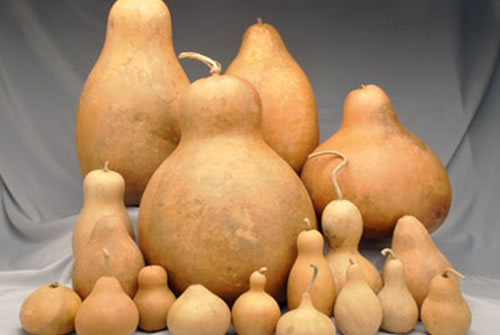Apr. 2002 Proverb: ” Slowly, slowly, porridge goes into the gourd.” – Kuria ( Kenya, Tanzania)
April, 2002
Pole, pole uji uende kibuyu. (Swahili)
Slowly, slowly, porridge goes into the gourd. (English)

Kuria ( Kenya, Tanzania ) Proverb
Background, Explanation, Meaning and Everyday Use
“Ikirunguri” is light gruel or porridge made from ground millet grain. This is usually drunk hot or warm, but is spooned out to small children or to the sick or very old. In the context of the use of this proverb in Tanzania the gruel is carried out to the men when they are plowing in the fields. Since they take the oxen out before sunrise, leaving in the dark, they do not eat anything. At plowing time they work the oxen until they are tired, that is, about 11 a.m. or 12 noon. The oxen have to graze and rest so they can work the next day. During the morning after the babies are nursed and the children fed and sent off to school, the women take the already cooked gruel, boiled in water with milk and sugar added, out to men in the fields. There are women there too, planting in the furrows behind the plowers. Occasionally one woman might be guiding a stubborn or not fully trained ox although they are pretty well trained and follow the furrow to their side and turn on command. The women themselves will go out with gourds of “ikirunguri” when it is their turn to weed or thin the plantings.
An “ekerandi” is the gourd, an uneatable fruit grown on a vine like a melon or pumpkin. They grow with “necks” on them. When they are dried, a hole two or three inches wide is cut in the top. After the dried insides are shaken out, small hot coals or hot sand is put inside and shaken around to loosen the fibers and seeds left inside and also to smooth out the inside. Then they are used for milk, gruel, beer or other liquids. Other gourds are carefully cut in half and serve as dishes with “hands” for steadying or scooping water from a large pot. You might be served “ikirunguri” in one. In these days, of course, dishes and cups of plastic or pottery are used. Children take drinking water in half-liter plastic containers strapped around their necks or slung over their shoulders. The Maasai people still use elongated gourds for carrying liquids on long journeys. I see them in Kuria households, but they not used these days. But the gourds filled with porridge still go out to the fields during planting and cultivating. Obviously the gourds, since they are hot and heavy, must be poured very carefully lest they spill and burn someone’s hands. Or worse drop and the gruel is lost on the ground. So the Kuria saying arises: Slowly, slowly, porridge goes into the gourd.
This Kuria proverb belongs to a very large cluster of African proverbs about patience. For example the Swahili proverbs Haraka, haraka, haina baraka (Hurry, hurry has no blessing) and Pole pole ndiyo mwendo (Slowly, slowly is indeed the [long] journey).
Biblical Parallels
 In the Bible we have “The Parable of the Weeds”(Matthew 13:24-43). The weeds are sowed just after the wheat that if pulled up would be easily confused with the wheat stems. I believe the meaning refers to a special kind of weed, or even a forage crop for cattle, by the use of “tares” and “darnels” in old English Versions such as the King James Bible. These resemble wheat very much until the grain starts to head. This making the parable more meaningful since it is not just any kind of a weed that can be detected easily while hand cultivating. In the Kuria language I often translate the parable by using the example of “ikinyambi” and “uburi” (“tares” and “millet”). The uses of these words make the parable more understandable to the local people. The search for this example came from a question after one of my sermons: “Were these people in the Bible lazy — not wanting to cultivate or weed?” The “ikinyambi” is a particular type of weed that the old women showed me when they were thinning the millet. When they showed it to me I still couldn’t distinguish the stems. The seed doesn’t form into a head when it matures. The ordinary Kuria word for weed is “entoki.”
In the Bible we have “The Parable of the Weeds”(Matthew 13:24-43). The weeds are sowed just after the wheat that if pulled up would be easily confused with the wheat stems. I believe the meaning refers to a special kind of weed, or even a forage crop for cattle, by the use of “tares” and “darnels” in old English Versions such as the King James Bible. These resemble wheat very much until the grain starts to head. This making the parable more meaningful since it is not just any kind of a weed that can be detected easily while hand cultivating. In the Kuria language I often translate the parable by using the example of “ikinyambi” and “uburi” (“tares” and “millet”). The uses of these words make the parable more understandable to the local people. The search for this example came from a question after one of my sermons: “Were these people in the Bible lazy — not wanting to cultivate or weed?” The “ikinyambi” is a particular type of weed that the old women showed me when they were thinning the millet. When they showed it to me I still couldn’t distinguish the stems. The seed doesn’t form into a head when it matures. The ordinary Kuria word for weed is “entoki.”
Contemporary Use and Religious Application
This Kuria proverb in Kenya and Tanzania teaches “Carefulness and Patience” which is so much needed in this day and age. This gives an important message to certain societies (such as the American culture where the character and temperament wants everything done “yesterday”). It challenges people who are happy to be done with a job, even though it was done sloppily. Besides “Carefulness and Patience” the proverb teaches us to give people time to reform, with help, rather than condemning them at the first sign of “stepping out of line” and thus confirming them in their error.
Rev. Frank Flynn, M.M.
Musoma, Tanzania
E-mail: Flynn<MklAfricaMusoma@hotmail.com>
